India's Low Per Capita Emissions: Minister Rejects GHG Ranking
By Rediff Money Desk, New Delhi Sep 18, 2024 12:04
India's Environment Minister argues that the country's low per capita emissions should be considered instead of its ranking as a major GHG emitter. Learn about the 'common but differentiated responsibilities' principle and India's low-carbon development strategy.
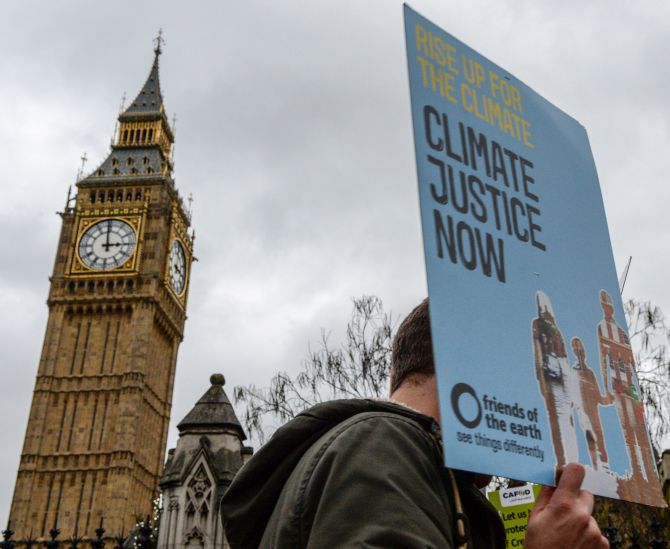
New Delhi, Sep 18 (PTI) Union Environment Minister Bhupender Yadav on Wednesday said India should not be viewed as the world's third or fourth-largest emitter of greenhouse gases and its low per capita emission should be considered instead.
Addressing a session at the Global Renewable Energy Investors Meet and Expo in Gandhinagar, Gujarat, he said India is home to 17 per cent of the world's population, but its share of global carbon emissions is less than 5 per cent.
In contrast, the per capita emissions of the combined 17 per cent population in developed countries account for 60 per cent of global emissions, he added.
"India should not be viewed as the world's third or fourth-largest emitter of greenhouse gases. While we might rank 'fourth or fifth' in terms of (cumulative) carbon emissions, our per capita emissions are significantly lower than those of developed countries," he said.
When it comes to the use of fossil fuels, developing countries, including India, maintain that they still have significant development needs and therefore the principle of 'common but differentiated responsibilities' should form the basis for negotiations on this issue, the minister said.
This principle acknowledges that while all countries share a responsibility to address climate change, developed countries have historically contributed more to global emissions and have greater financial and technological capacities to address the problem.
Developing nations argue that they have significant development needs, such as poverty alleviation and infrastructure growth, which may require continued use of fossil fuels in the near term.
They advocate for equity and fairness, requesting more time and support to transition to cleaner energy sources, while also ensuring that their developmental needs are met.
India is moving forward with a low-carbon development strategy while taking its national circumstances into account, Yadav said.
Addressing a session at the Global Renewable Energy Investors Meet and Expo in Gandhinagar, Gujarat, he said India is home to 17 per cent of the world's population, but its share of global carbon emissions is less than 5 per cent.
In contrast, the per capita emissions of the combined 17 per cent population in developed countries account for 60 per cent of global emissions, he added.
"India should not be viewed as the world's third or fourth-largest emitter of greenhouse gases. While we might rank 'fourth or fifth' in terms of (cumulative) carbon emissions, our per capita emissions are significantly lower than those of developed countries," he said.
When it comes to the use of fossil fuels, developing countries, including India, maintain that they still have significant development needs and therefore the principle of 'common but differentiated responsibilities' should form the basis for negotiations on this issue, the minister said.
This principle acknowledges that while all countries share a responsibility to address climate change, developed countries have historically contributed more to global emissions and have greater financial and technological capacities to address the problem.
Developing nations argue that they have significant development needs, such as poverty alleviation and infrastructure growth, which may require continued use of fossil fuels in the near term.
They advocate for equity and fairness, requesting more time and support to transition to cleaner energy sources, while also ensuring that their developmental needs are met.
India is moving forward with a low-carbon development strategy while taking its national circumstances into account, Yadav said.
Source: PTI
Read More On:
DISCLAIMER - This article is from a syndicated feed. The original source is responsible for accuracy, views & content ownership. Views expressed may not reflect those of rediff.com India Limited.
You May Like To Read
TODAY'S MOST TRADED COMPANIES
- Company Name
- Price
- Volume
- Vodafone Idea L
- 12.90 ( -1.68)
- 31361063
- GTL Infrastructure
- 2.46 ( 0.00)
- 18215237
- Bajaj Housing Fin
- 172.76 ( -4.80)
- 15870360
- Gennex Laboratories
- 27.98 (+ 4.99)
- 14201723
- Spicejet Ltd.
- 69.51 ( -5.71)
- 13704366
MORE NEWS

Govt to Increase Wheat Allocation under PMGKAY
The Indian government has announced an increase in wheat allocation to beneficiaries...

Tata Power Wins 400 MW Hybrid Project in...
Tata Power Renewable Energy secures a 400 MW wind-solar hybrid project from MSEDCL,...

Lupin Signs Patent License for Gastrointestinal...
Lupin has entered into a patent license agreement with Takeda to commercialise...




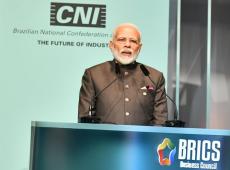
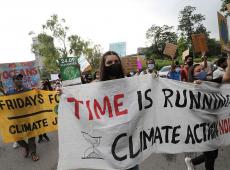


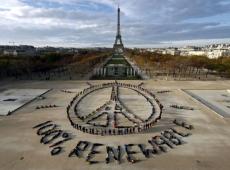

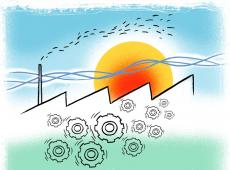
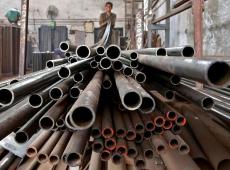
 © 2024 Rediff.com India Limited. All rights reserved.
© 2024 Rediff.com India Limited. All rights reserved.